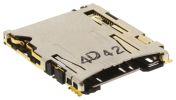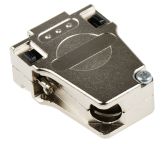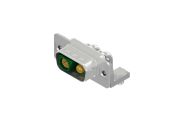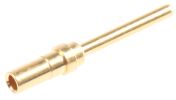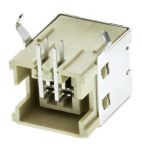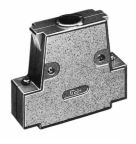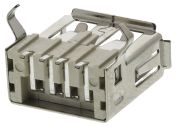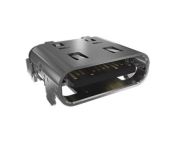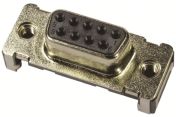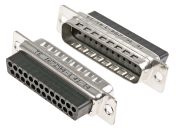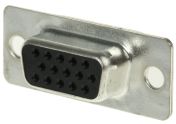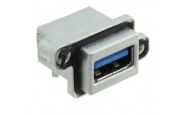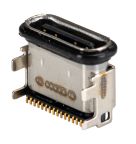We have a large range of data, electrical and computing connectors for both office and domestic uses. You'll find memory and SIM card connectors, type A, B, C, mini and micro USB connectors as well as D-sub connectors, kits and backshells. We stock many manufacturers that include TE Connectivity, MH Connectors and Harting or try our own brand RS PRO.
What is a computer connector?
Computing systems have many accessories and devices that they need to work with for example to transfer data or power. A connector is used to join conductors electrically or mechanically together.
There are lots of different kinds of connectors available that are designed for different applications. Here is an overview of some of the most popular connectors and what they are used for.
D-subminiature connectors types
D-sub connectors have a d-shaped shield that screens interference and 2 rows of pins with varying configurations. They can be cable or board mounted and are commonly used for display and serial-port communications. Our range includes replaceable parts such as backshells (housing), screw locks and contacts. Common types are:
- Standard density D-sub connectors
- High-density D-sub connectors
- PCB D-sub connectors
USB connectors types
Used for both power and data transfer between computers and devices. There are different types of USB connector available:
- Type A: Rectangular in shape – the standard USB port
- Type B: Almost square in shape, mostly used for peripherals like printers.
- Mini & Micro B: Used with small devices such as smartphones, cameras and wearable devices
- Type C: The newest and smallest USB connector that is symmetrical in shape with 24 pins, in 2 rows of 12
Memory and sim card connectors
Receptacles for sim and memory storage cards to be used in devices such as laptops, phones and cameras.
Selecting a connector
Along with the application the connector is designed for, they have different attributes to consider when choosing which connector to use in a system:
- Number of positions for installation
- Style
- Orientation
- Termination - crimp, solder or other
- Mating Type
- Material
- Mounting method















